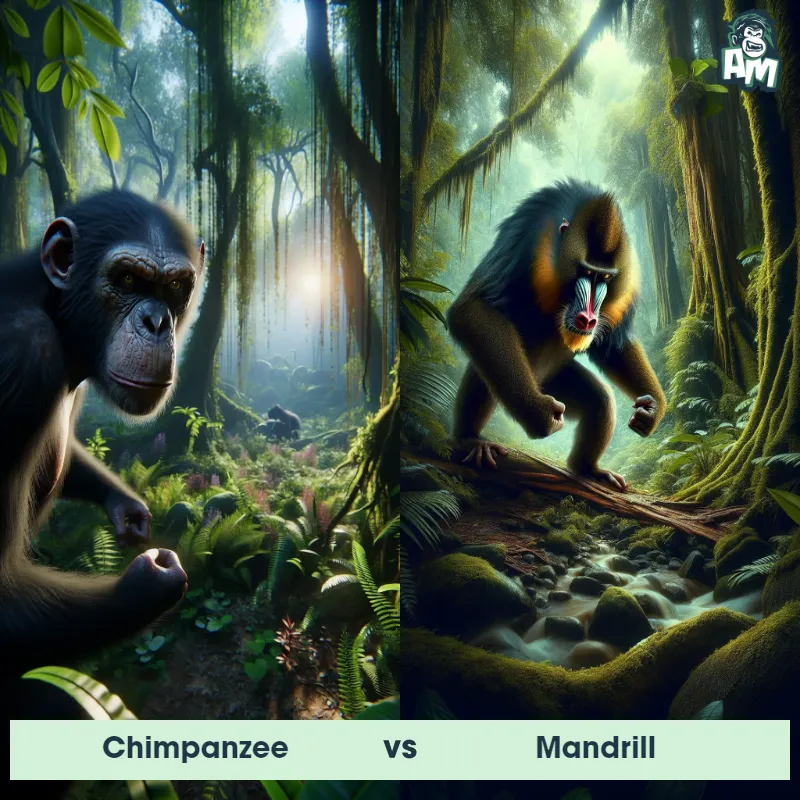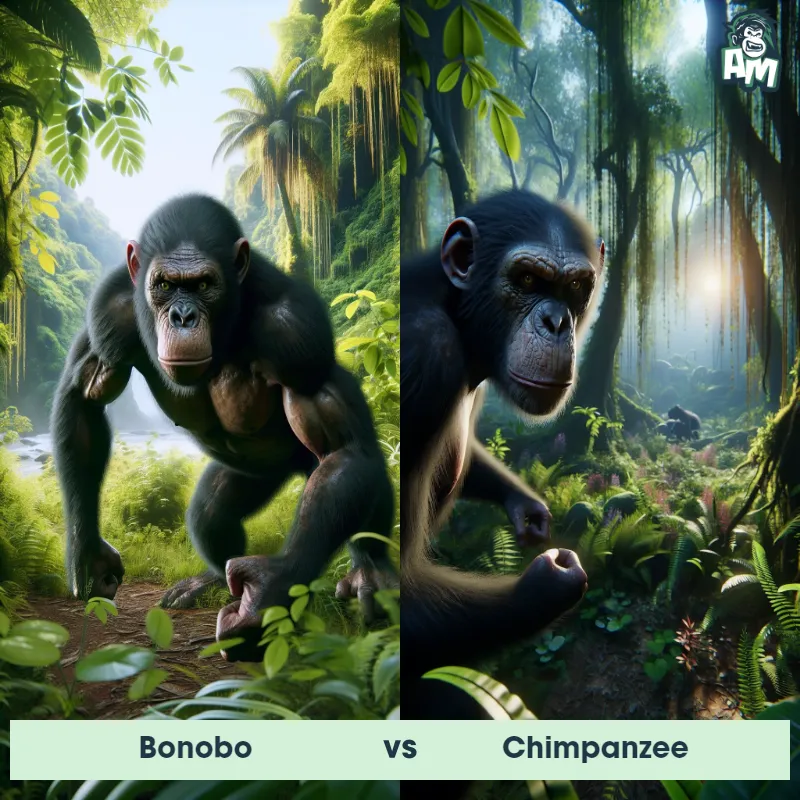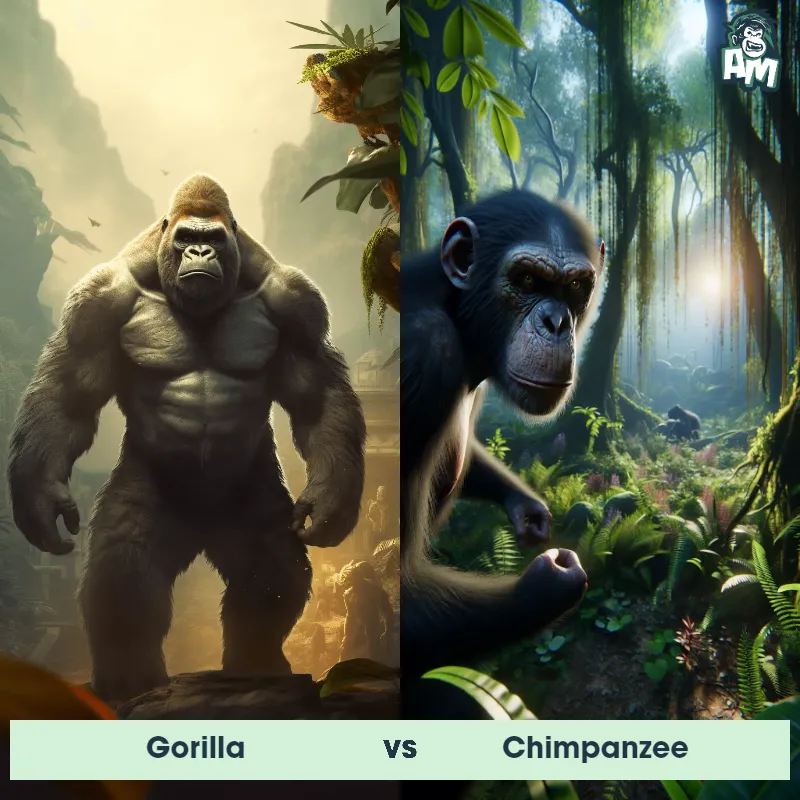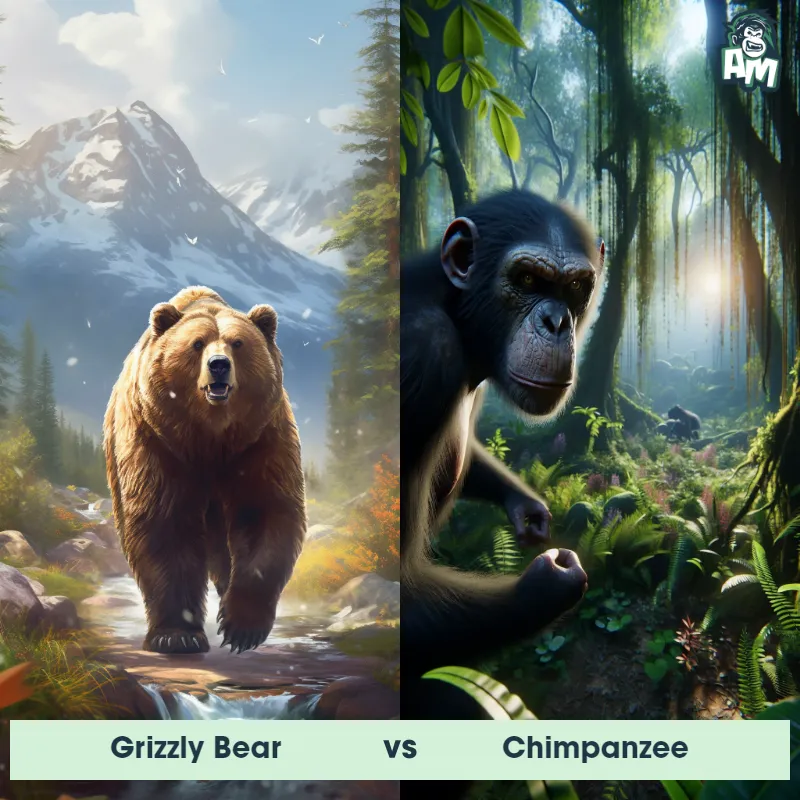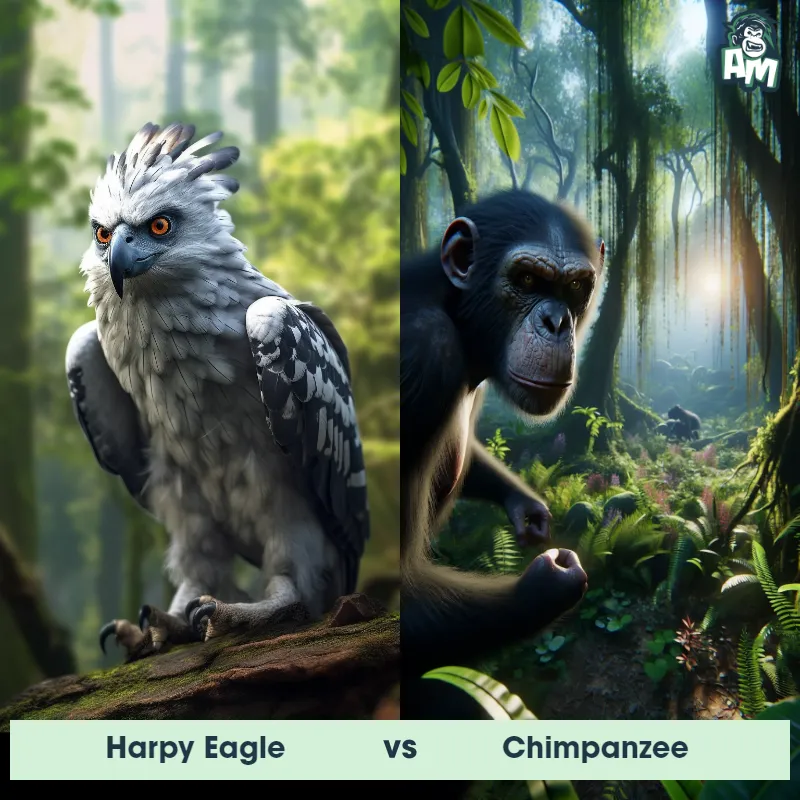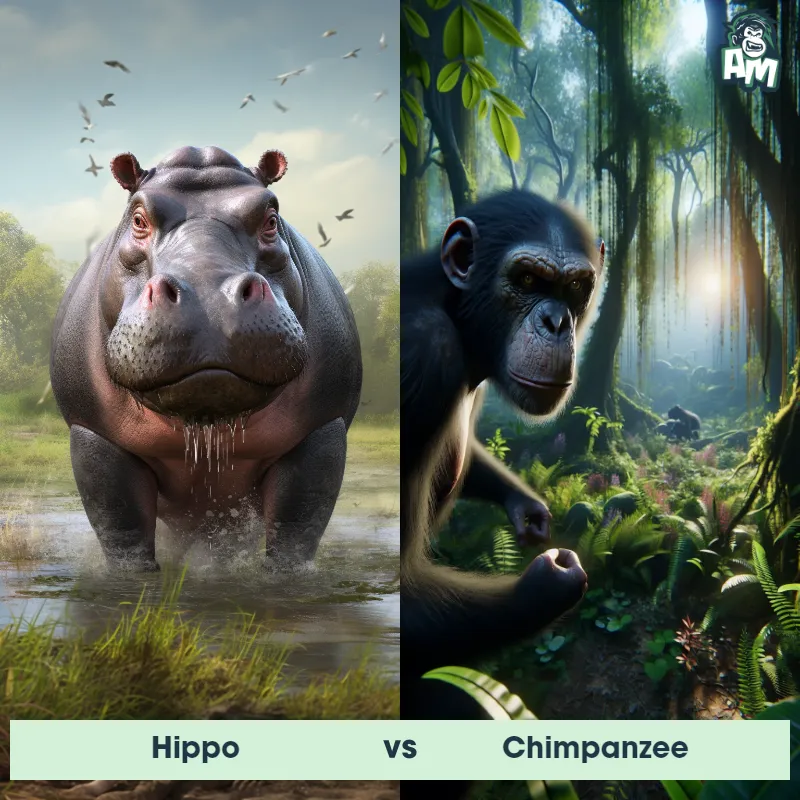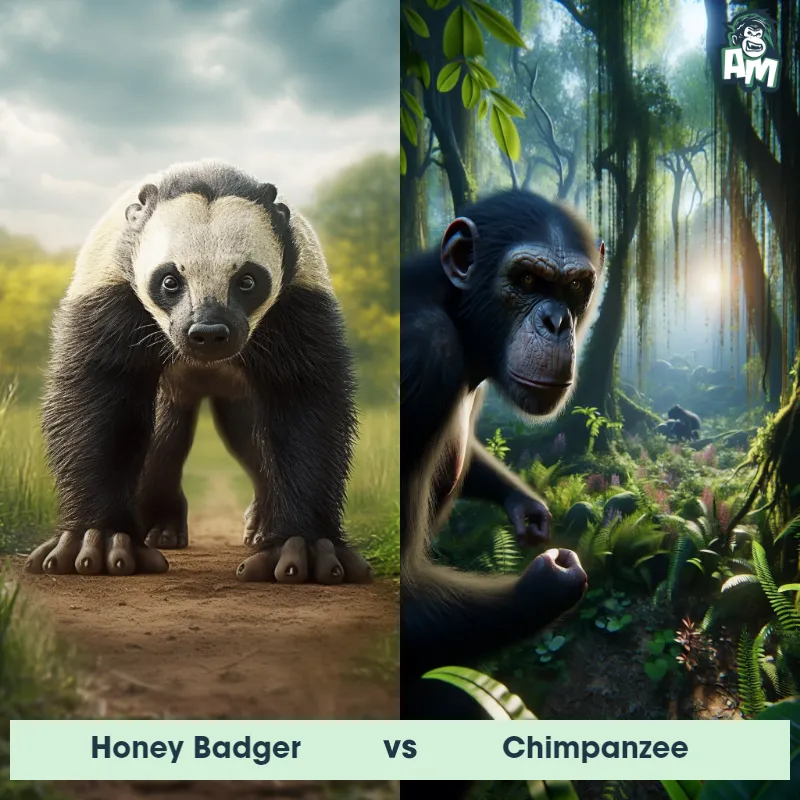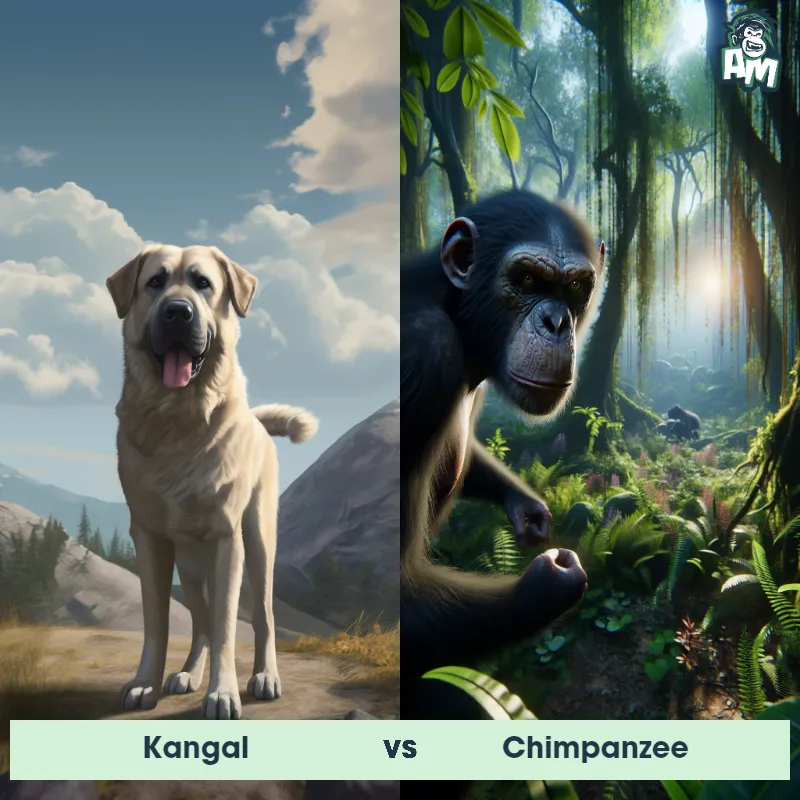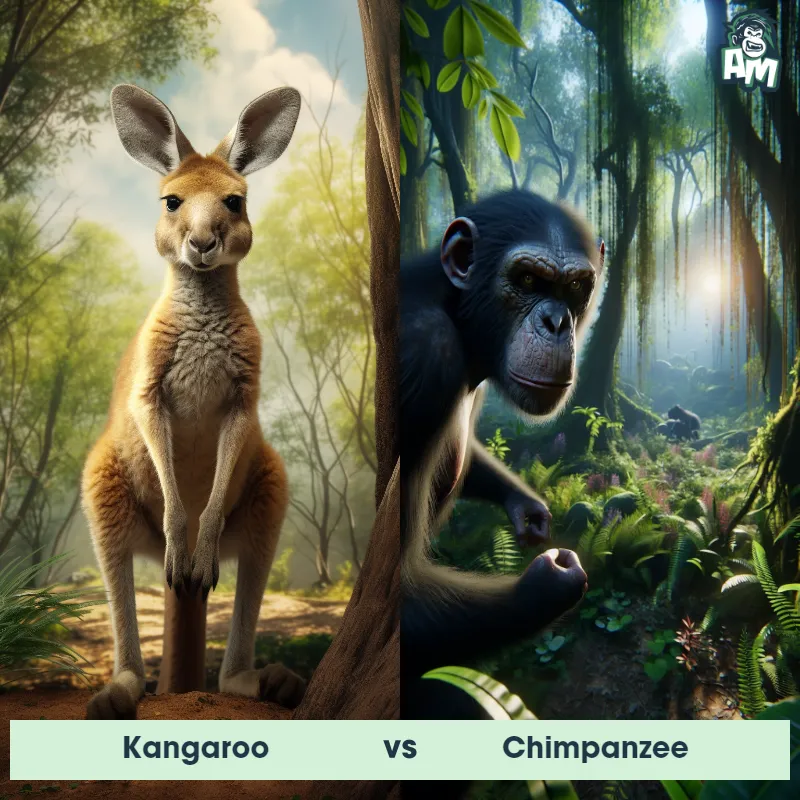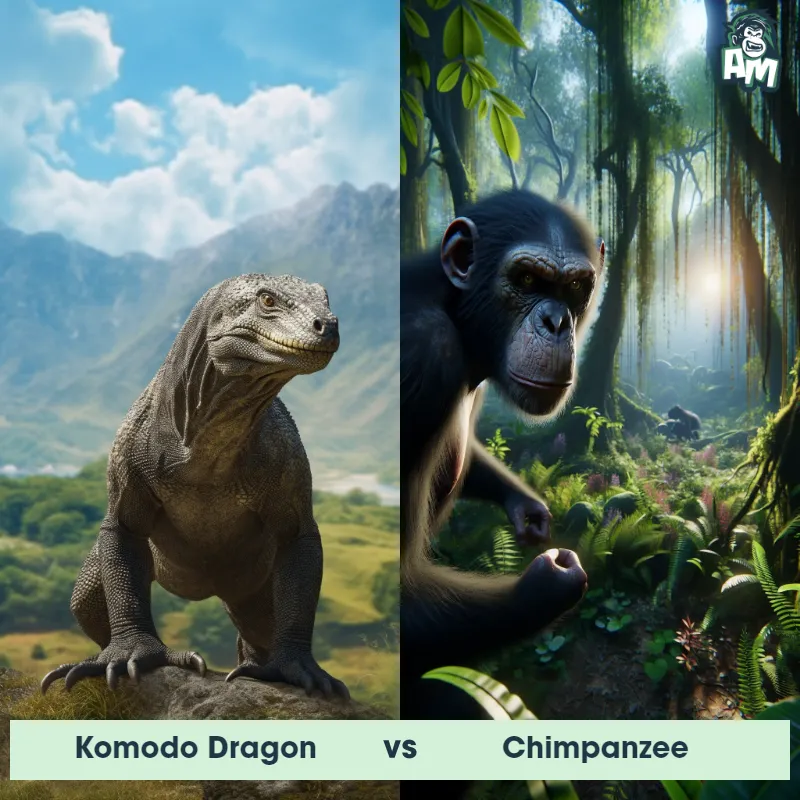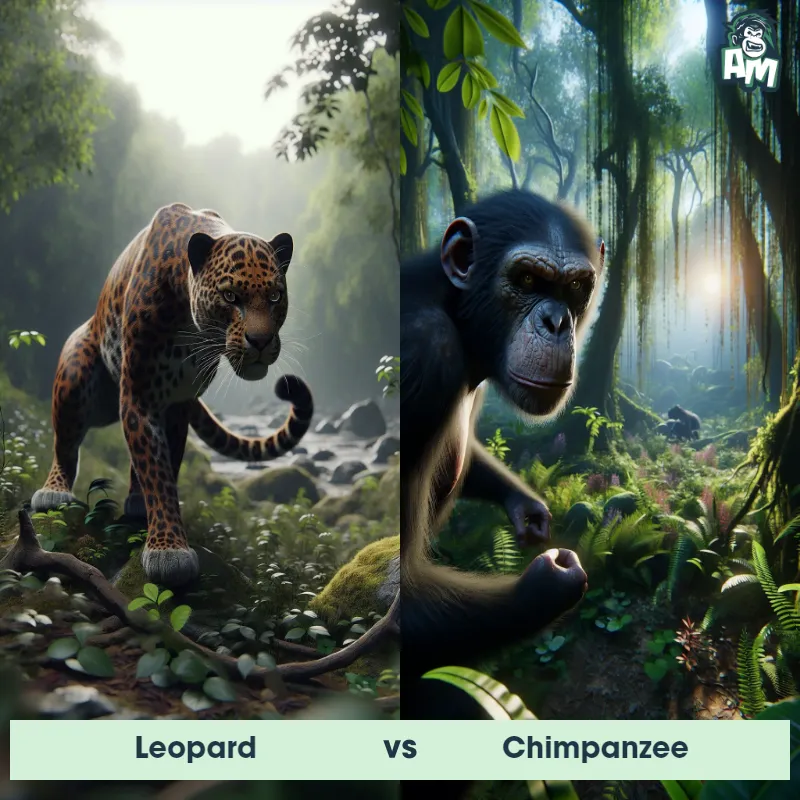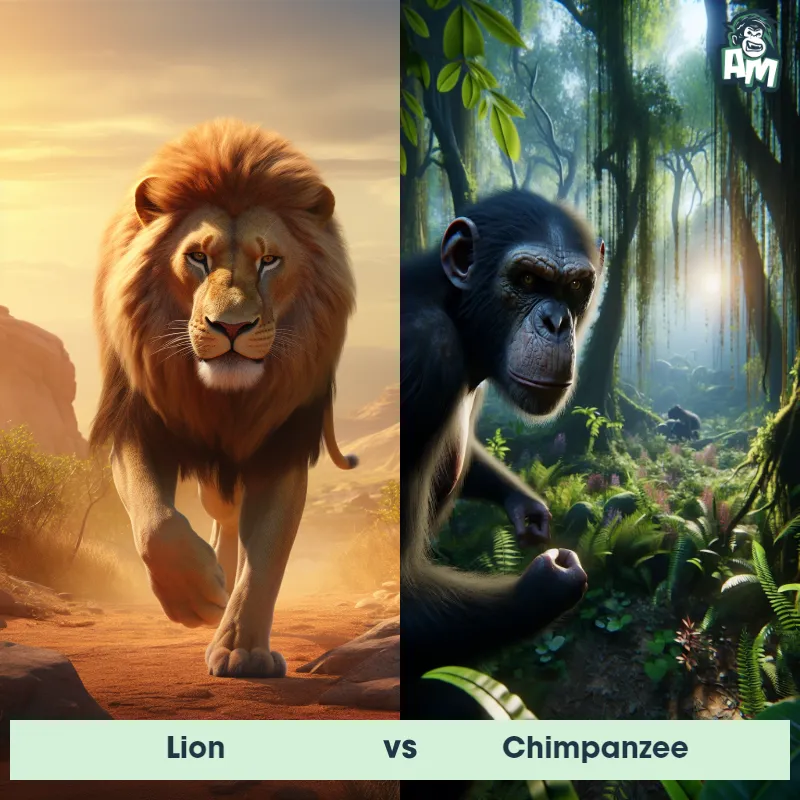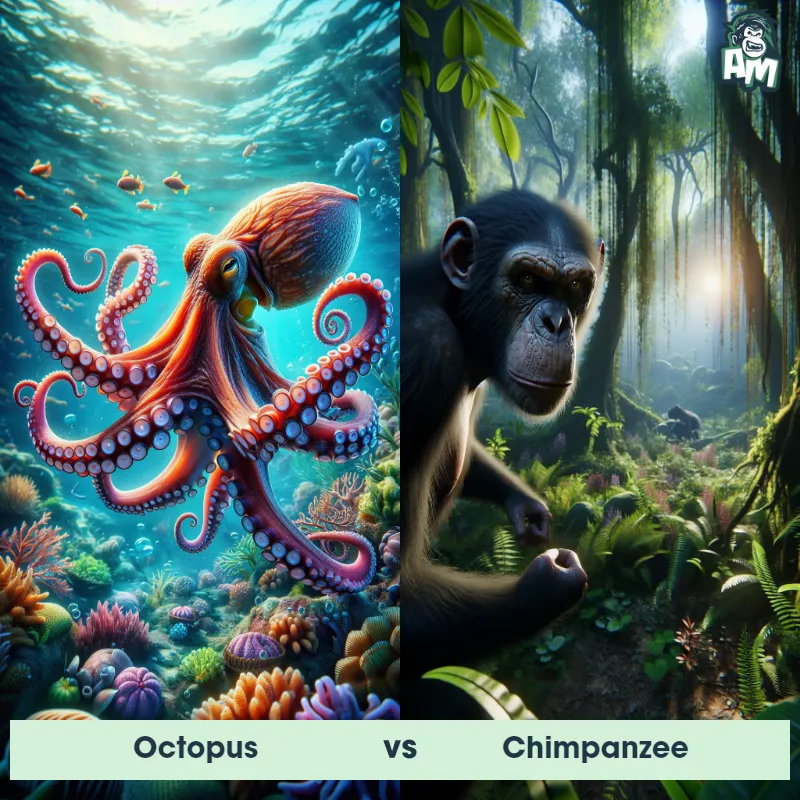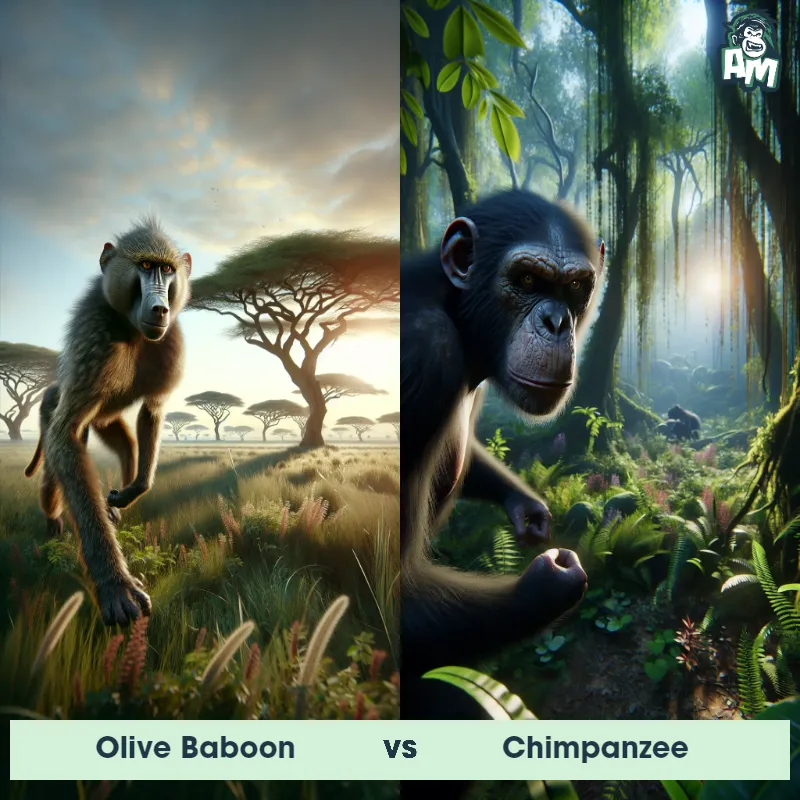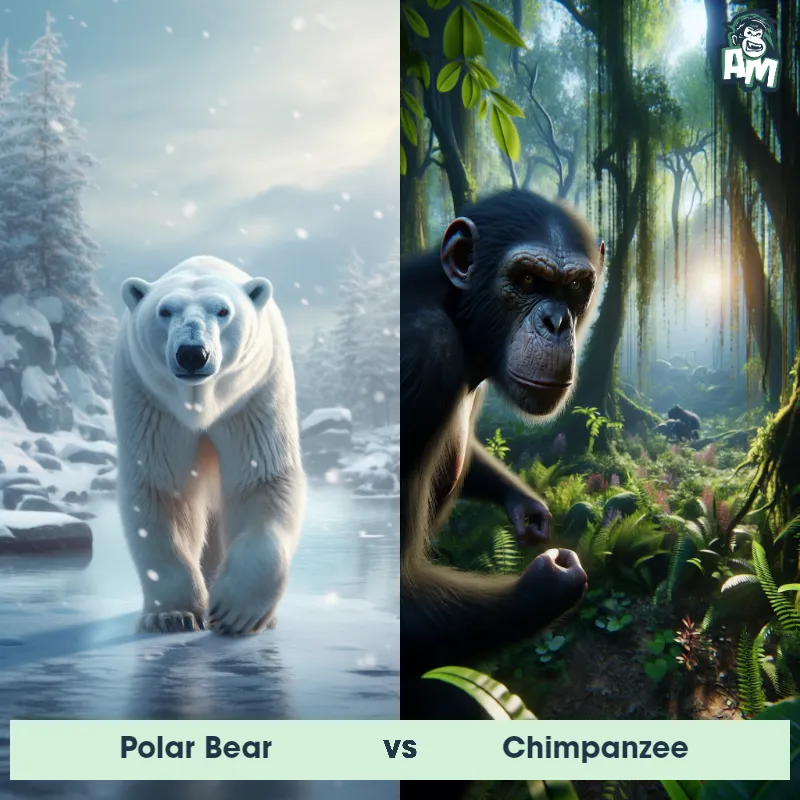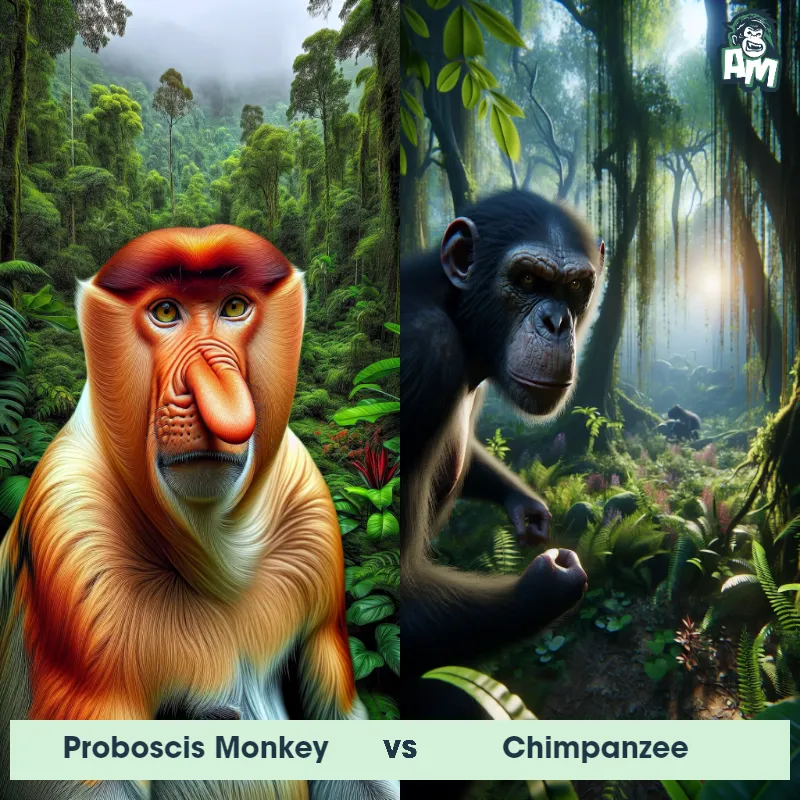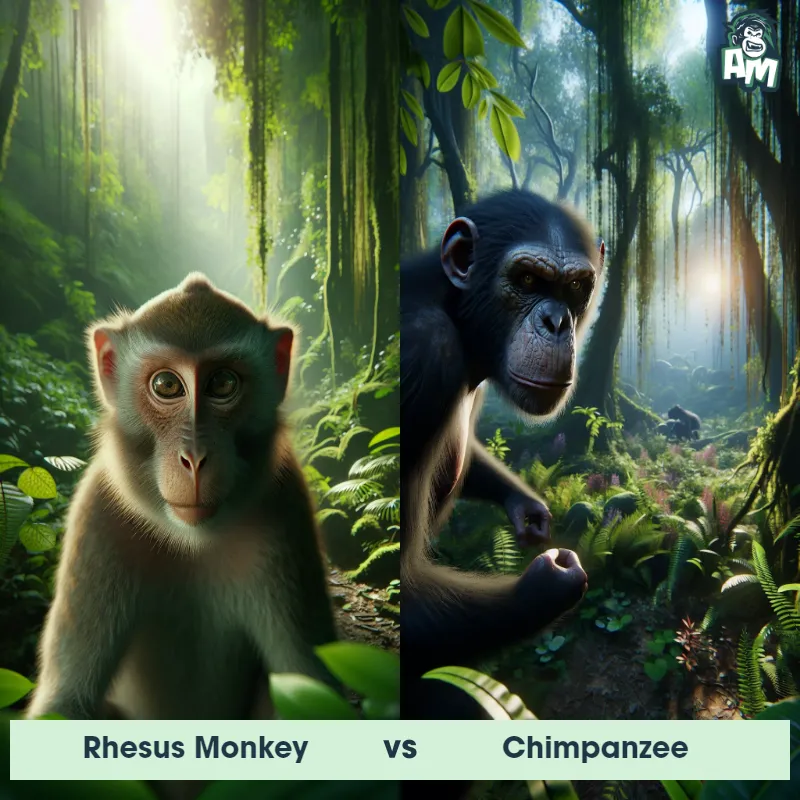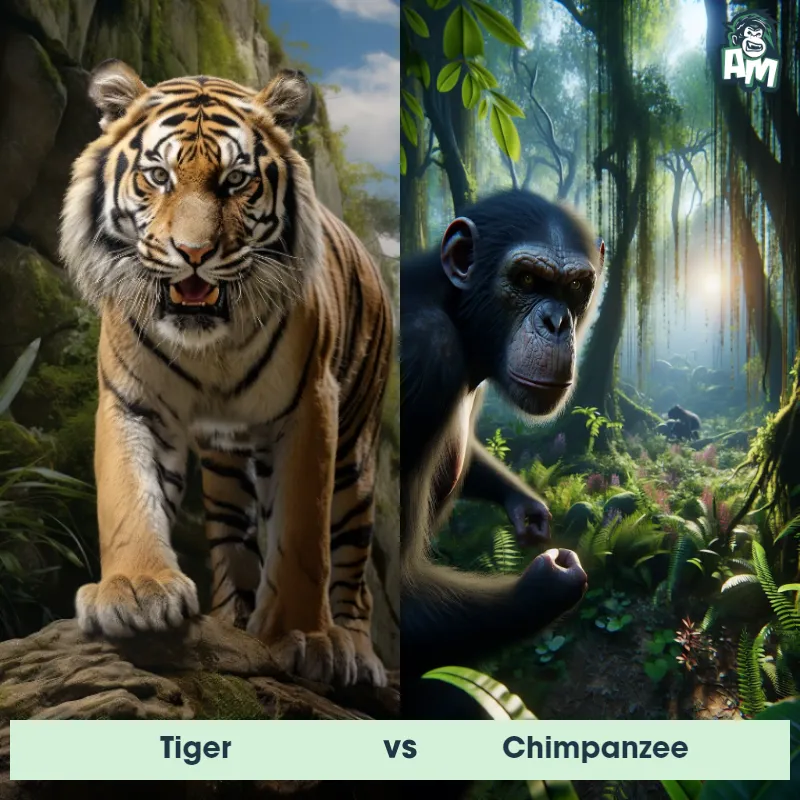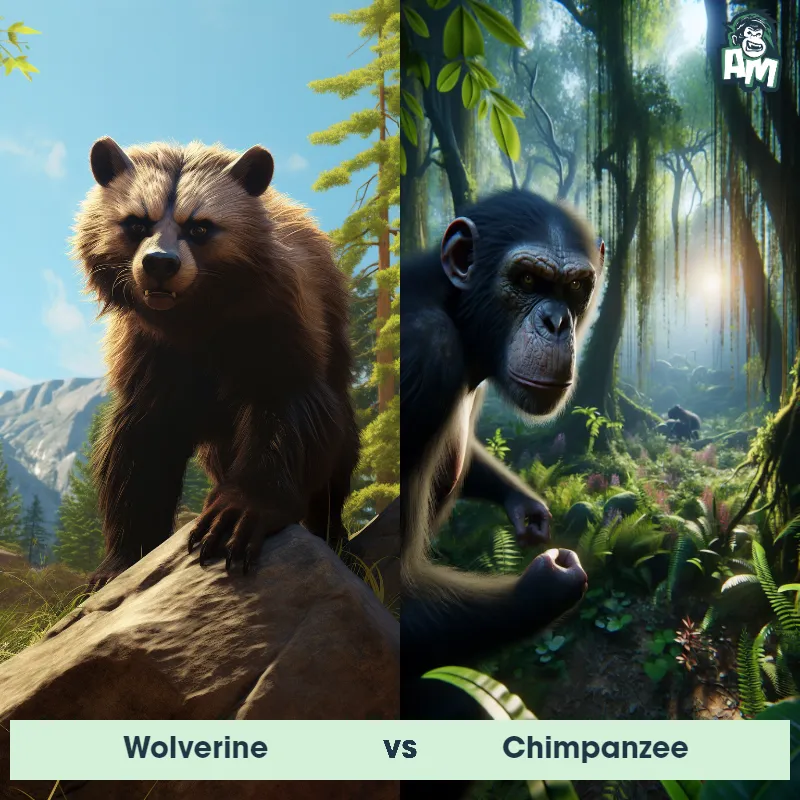The Chimpanzee
The Chimpanzee, also known as Pan troglodytes, is a highly intelligent primate that is found in the forests and savannas of Central and Western Africa. They are closely related to humans, sharing approximately 98% of their DNA. Chimpanzees have a robust build with long arms and a short, knuckle-walking gait. They are covered in coarse black hair, except for their face, hands, and feet, which are hairless. Chimpanzees have a complex social structure, living in communities ranging from 15 to 150 individuals, and they display a wide range of behaviors, including tool use and problem-solving skills.
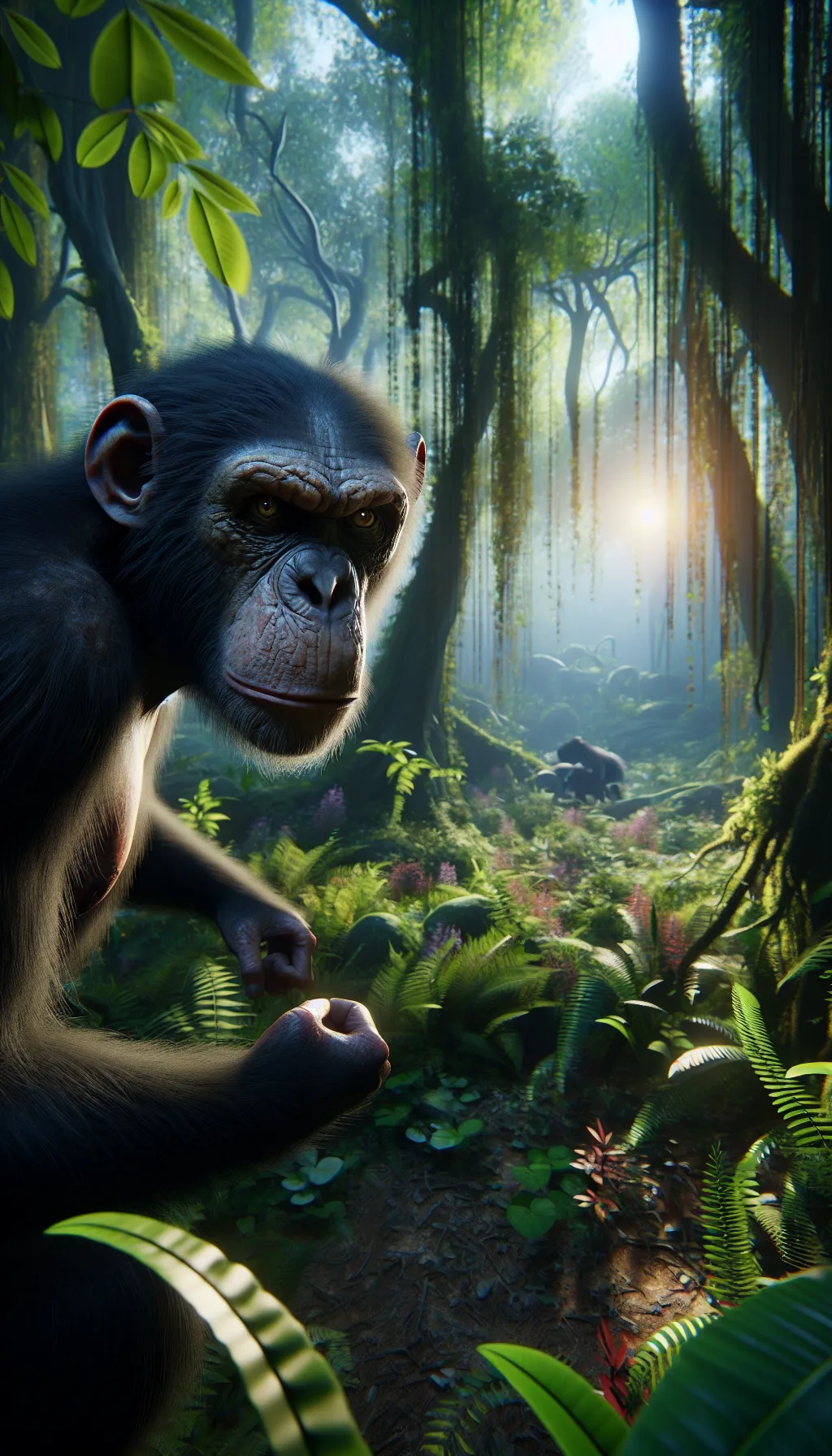
| Chimpanzee | |
|---|---|
| Size | 3 to 5 feet (0.9 to 1.5 meters) |
| Weight | 70 to 130 pounds (31 to 59 kilograms) |
| Speed | 25mph (40km/h) |
| Key Strength | Strong arm and upper body muscles |
| Biggest Weakness | Vulnerable to attacks from the back |
| Scientific Name | Pan troglodytes |
| Family | Hominidae |
| Habitat | Forests and woodlands |
| Geography | Central and West Africa |
| Diet | Omnivorous |
| Lifespan | 40 years - 60 years |

The Chimpanzee
The Chimpanzee, also known as Pan troglodytes, is a highly intelligent primate that is found in the forests and savannas of Central and Western Africa. They are closely related to humans, sharing approximately 98% of their DNA. Chimpanzees have a robust build with long arms and a short, knuckle-walking gait. They are covered in coarse black hair, except for their face, hands, and feet, which are hairless. Chimpanzees have a complex social structure, living in communities ranging from 15 to 150 individuals, and they display a wide range of behaviors, including tool use and problem-solving skills.
Fun Fact: Chimpanzees are known to use tools in the wild, a behavior that was long believed to be unique to humans, as they have been observed using sticks to extract insects from tree crevices and using stones as hammers to crack nuts.
| Chimpanzee | |
|---|---|
| Size | 3 to 5 feet (0.9 to 1.5 meters) |
| Weight | 70 to 130 pounds (31 to 59 kilograms) |
| Speed | 25mph (40km/h) |
| Key Strength | Strong arm and upper body muscles |
| Biggest Weakness | Vulnerable to attacks from the back |
| Scientific Name | Pan troglodytes |
| Family | Hominidae |
| Habitat | Forests and woodlands |
| Geography | Central and West Africa |
| Diet | Omnivorous |
| Lifespan | 40 years - 60 years |
Chimpanzee Matchups
We use AI to simulate matchups between the Chimpanzee and other animals. Our simulation considers size, strength, and natural predatory behaviors to determine the most likely outcome.
Chimpanzee: Diet, Predators, Aggression, and Defensive Behaviors
What do Chimpanzees eat?
Chimpanzees are omnivores, which means they eat a variety of foods. Their diet consists mainly of fruits, leaves, seeds, and insects. They have also been known to hunt and eat small mammals, such as monkeys or young antelope. Chimpanzees are skilled in using tools to extract insects from trees or to crack open nuts for consumption.
Do Chimpanzees have any predators?
Adult Chimpanzees do not have many natural predators due to their size and strength. However, young Chimpanzees are vulnerable to predation by leopards, pythons, and eagles. Additionally, humans pose a significant threat to Chimpanzees through hunting and habitat destruction.
Are Chimpanzees aggressive?
Chimpanzees are known to be territorial and can exhibit aggressive behavior, especially towards other Chimpanzees outside their group. They may also display aggression during competition for resources, such as food or mates. This behavior can include vocalizations, physical displays, and even physical violence.
Do Chimpanzees fight?
Chimpanzees do engage in fights, especially within their own social groups. These fights can be over dominance, access to resources, or disputes between individuals. Fights among Chimpanzees can be intense and may involve physical contact, such as biting, hitting, or throwing objects.
How do Chimpanzees defend themselves?
Chimpanzees have several strategies for defending themselves against threats. They may vocalize loudly to intimidate predators or intruders, use physical displays to deter aggression, and even form alliances with other group members to increase their collective defense. In some cases, they may also flee from a perceived threat to avoid confrontations.
What is the biggest weakness of Chimpanzees in a fight?
Despite their strength and agility, Chimpanzees have a vulnerability in their comparatively thin skin and lack of protective fur. This leaves them susceptible to injuries during physical fights, such as cuts, bruises, or infections from wounds. Additionally, their reliance on social alliances means that isolation or expulsion from the group can leave an individual vulnerable to predation or aggression.
Fun Fact: Chimpanzees have an exceptional memory and can remember the location of hundreds of fruit trees within their territory, relying on this knowledge to find their preferred food sources throughout the year.
Fun Fact: Chimpanzees are capable of showing empathy towards their fellow group members. They display comforting behaviors such as hugging, patting, and grooming when others are distressed, indicating their ability to understand and respond to the emotions of their companions.



